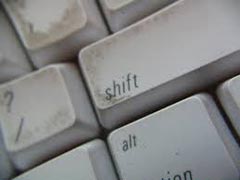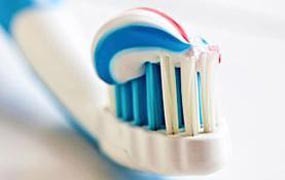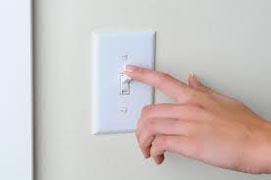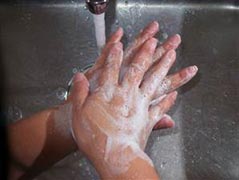Ick factor alert!
5 little-known facts about germs
While itís common knowledge that exposure to germs can lead to
illnesses ranging from colds to stomach bugs, there are some steps you
can take to help prevent the spread of germs in your personal space.
Increase your germ smarts (and protect against illness) with these five
little-known facts:
1. Computer keyboards can have more germs than a public toilet

Keys and spaces on a keyboard are prime breeding grounds for bacterial
and viral growth. Some reports show five times more germs on a keyboard
than on a public toilet (and these are likely cleaned more often!).
Clean your keyboard regularly with specialized wipes for electronics,
and remove crumbs and dust with an Ďair dusterí (canister of compressed
air sprayed on the keyboard).
2. Toothbrush covers do not protect your brush from bacteria

While it seems to make sense that covering your toothbrush would
protect, the opposite is the case. With a cover on your brush, a more
humid environment is created and more likely to encourage growth of
germs. Wash your toothbrush when done, and allow it to air dry.
Make sure you store it away from the toilet (and keep that lid
down!).
3. Light switches are among the cleanest spots in a hotel room

While multiple reports look at clean and dirty places in a hotel room,
among the cleanest are the light switches. The dirtiest tend to be the
TV remote control and the telephone.
A good rule of thumb is to always wash your hands with soap and
water, carry hand sanitizer, and bring along a box of wipes to swab down
areas of general use in your hotel room ó and anytime you are on the
road.
4. Hand sanitizer does not always replace soap and water washing.

Hand sanitizer is great when youíre not near a sink, and need to clean
your hands. But given the choice of a spritz of sanitizer or good old
soap and water, choose the soap and water route. But soap and water are
only a better germ fighter when done properly. Lather up and scrub hard
for at least 20 seconds (sing Happy Birthday twice), and wash between
your fingers and the back of your hands. Donít skimp with the hand
sanitizer either-cover the same hand areas as for soap and water.
5. Freezing food does not kill bacteria.

If you freeze foods that you suspect might be spoiled (or on their way),
freezing them will not kill the bacteria already in the food. Freezing
prevents further bacterial growth, but when you thaw it out, the
bacteria continue to multiply and contaminate your food.
Avoid freezing foods left at room temperature for more than 2 hours,
when bacterial growth escalates.
-Health Today
|

